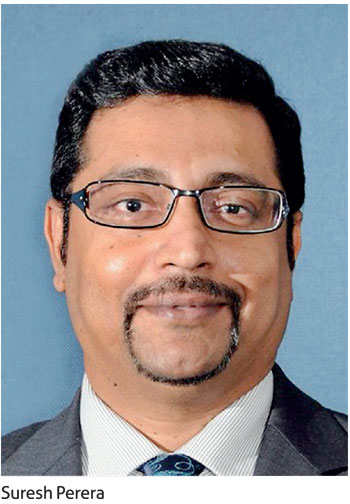26 Sep 2017 - {{hitsCtrl.values.hits}}
 The newly introduced Inland Revenue Act (IRA), which is dubbed as a carbon copy of the tax code introduced in Ghana by the International Monetary Fund (IMF), is largely expected to see its first amendment before its implementation on April 1, 2018, said an expert in tax policy and planning.
The newly introduced Inland Revenue Act (IRA), which is dubbed as a carbon copy of the tax code introduced in Ghana by the International Monetary Fund (IMF), is largely expected to see its first amendment before its implementation on April 1, 2018, said an expert in tax policy and planning.
Sri Lanka’s new IRA, which overhauled the country’s existing tax code, exempted individuals of 10 percent withholding tax (WHT) payable on interest earned from investments in government securities (G-Secs) but made such incomes liable for income tax up to 24 percent depending on the amount of total income.
Under the present law, individuals investing in treasury bills and bonds are taxed at 10 percent withholding tax, irrespective of them being domestic or foreign. However, KPMG Sri Lanka Principal for Tax and Regulatory Suresh Perera said that by removing the WHT on G-Sec incomes, the government has effectively relieved the foreign investors of any tax on such income.
Therefore, he said this would result in a sizable leakage of tax revenues to the government because in recent times the foreigners holding in G-Secs may have increased considerably.
According to the Central Bank data, foreigners had bought as much as Rs.17.3 billion worth of G-Secs so far during the year while the total G-Secs held by them tops Rs.278 billion, little under 6.0 percent of the total outstanding G-Sec stock.
“This will result in interest going out of the country without any tax being paid,” Perera told a seminar organised by the Institute of Certified Management Accountants of Sri Lanka (CMA) last week.
Therefore, he said the government would have to bring in an amendment to the act before its implementation date.
Perera recollected a similar development, which occurred in Ghana in relation to foreign individuals holding G-Secs, where the Ghanaian government had to bring in an amendment to bring foreign investors under the tax net.
“The same thing happened in Ghana also where they brought this as their first amendment to the Inland Revenue Act,” Perera said.
Meanwhile, the new IRA also removed the 10 percent WTH exemption enjoyed by institutions and made them liable for 28 percent income tax, barring charities and pension funds, which will be made liable for the concessionary income tax rate of 14 percent.
The new IRA, which was passed in parliament early this month, also lifted the withholding and income tax exemptions applicable on listed corporate debt.
29 Sep 2024 9 hours ago
29 Sep 2024 29 Sep 2024
29 Sep 2024 29 Sep 2024
29 Sep 2024 29 Sep 2024
29 Sep 2024 29 Sep 2024